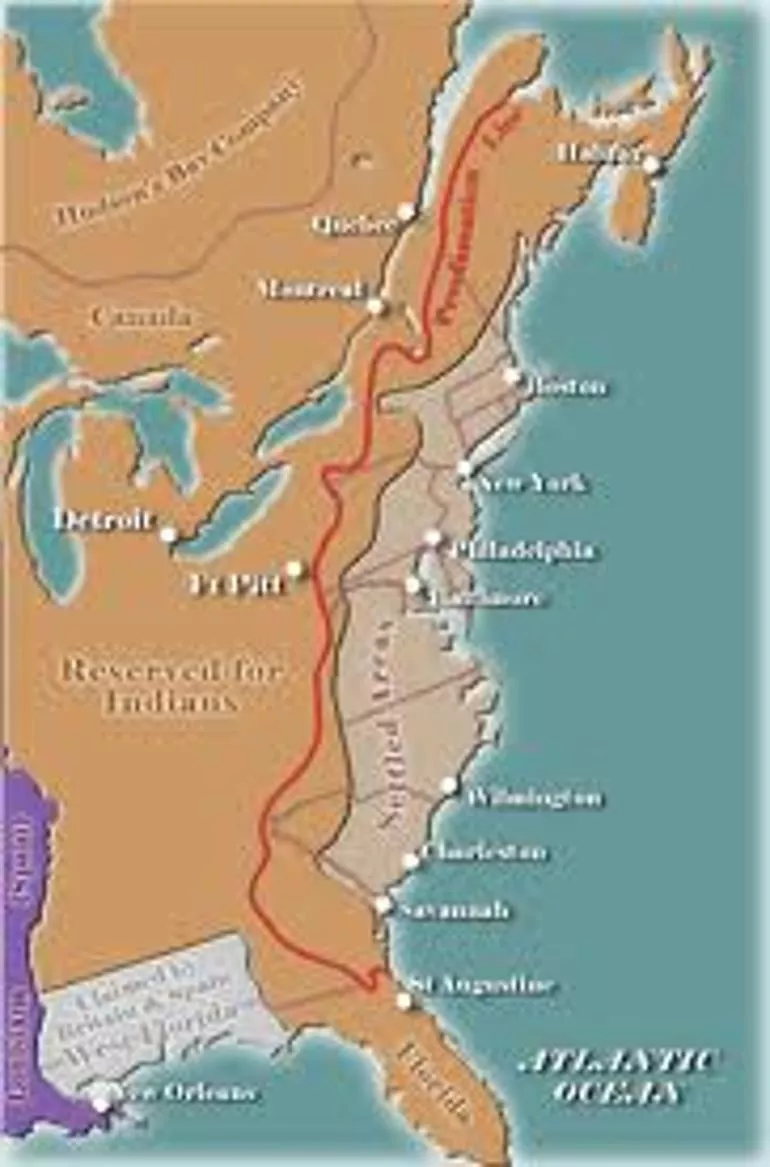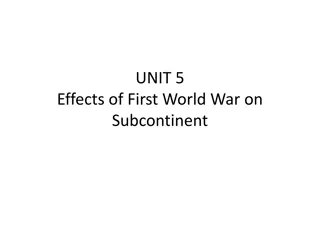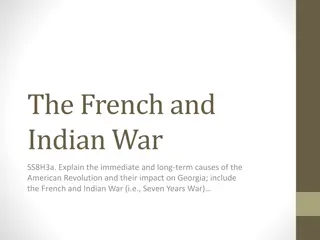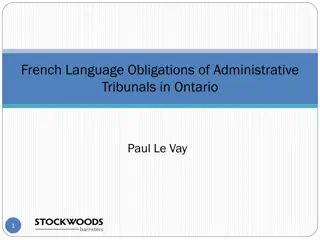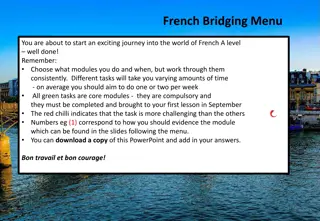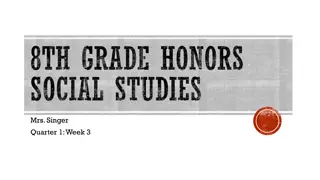The French and Indian War: Road to Revolution
The conflict between England and its colonies escalated as the French and Indian War unfolded from 1754 to 1763. The competition over the Ohio River Valley led to tensions and ultimately war, resulting in the Treaty of Paris in 1763. Pontiac's Rebellion further complicated matters, leading to the Proclamation of 1763, which restricted settlement in the region. This significant period marked a pivotal step towards the American Revolution.
Download Presentation

Please find below an Image/Link to download the presentation.
The content on the website is provided AS IS for your information and personal use only. It may not be sold, licensed, or shared on other websites without obtaining consent from the author. Download presentation by click this link. If you encounter any issues during the download, it is possible that the publisher has removed the file from their server.
E N D
Presentation Transcript
The French and Indian War Road to Revolution Begins
Conflict Begins Between England and it s colonies By 1750 the colonies were growing rapidly due to: Cheap land Religious tolerance Economic opportunity BUT most importantly, England had left the colonies alone to solve their own problems Salutary Neglect With this growth, colonists hoped to move across the Appalachian Mountains and into the Ohio River Valley
France and England Claim the Ohio River Valley Both France and England claimed this area France wanted to control trade with the Indians Britain wanted to extend the colonies to gain more land
War Begins and Spreads From 1754-1763 war raged throughout the colonies Benjamin Franklin tried uniting the colonies with the Albany Plan of Union Purpose: to unify the colonies in order to better govern themselves and defeat the French Rejected: Colonial legislatures did not want to give up control
The Treaty of Paris, 1763 Terms of the treaty: Britain gains all land from the Atlantic to the Mississippi River France gives Louisiana (area west of the Mississippi) to Spain for their help
Pontiacs Rebellion Pontiac, an Ottawa Indian, wanted to stop the loss of Native land The fighting between the colonists and the Ottawa became known as Pontiac s Rebellion British decided that the western land would be expensive to defend so they passed the Proclamation of 1763 Outlawedsettlement west of the Appalachian Mts., including the Ohio River Valley land they had just won!
Proclamation of 1763 This angered colonists who had just fought a war for that land Moving west was the only option for same farmers to get land The British government was angry also Colonists refused to pay extra taxes to defend the land against the Ottawa They started to ignore the colonists arguments Hostility helped fuel the Revolution
Draw this on the back of your French & Indian War notes
Draw on the back of your notes: Cause and Effect 1. Pontiac s Rebellion 1. colonies were growing rapidly 2. Proclamation of 1763- colonists cannot settle west of App. Mts. French and Indian War 2. colonists hoped to move across Appalachian Mts. 3. The Treaty of Paris, 1763 France and England claimed this area A. Britain gains from the Atlantic to the Mississippi B. Spain gets Louisiana



